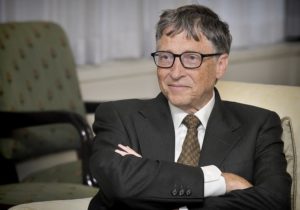
On his blog, Dr. Joseph Mercola takes a hard look at Bill Gates’ so-called “charity,” writing (abridged):
“Bill Gates — What You Were Not Told,” a segment of the Plandemic documentary,1 reviews the personal and professional background of the Microsoft mogul, Bill Gates. Contrary to popular myth, many see Gates as more of an opportunist than a genius inventor, and the video touches on several of the less honorable moments of his career.
After years of building a reputation as a “ruthless tech monopolizer,” Bill Gates 2.0 was launched with the creation of the Bill & Melinda Gates Foundation. With this foundation, he reinvented and rebranded himself as one of the world’s most generous philanthropists.
Gates’ Charity Is Not What It Seems
Alas, as noted by AGRA Watch,2 Shiva Vandana, Ph.D., and others, Gates’ brand of philanthropy creates several new problems for each one it solves and can best be described as “philanthrocapitalism.” As noted in the AGRA Watch article, “Philanthrocapitalism: The Gates Foundation’s African Programs Are Not Charity,” published in December 2017, advocates of philanthrocapitalism:3
“… often expect financial returns or secondary benefits over the long term from their investments in social programs. Philanthropy becomes another part of the engine of profit and corporate control. The Gates Foundation’s strategy for ‘development’ actually promotes neoliberal economic policies and corporate globalization.”
Indeed, over the years, Gates has ended up in a position where he monopolizes or wields disproportional influence over not only the tech industry, but also global health and vaccines, agriculture and food policy (including biopiracy and fake food), weather modification and other climate technologies,4 surveillance, education and media.
Not surprisingly, he’s tied to online fact checker organizations that strangle free speech, and recently told “60 Minutes” that to combat mistrust in science, we need to find ways to “slow down the crazy stuff.”5 What’s “crazy” and what’s not, however, is rarely as clear-cut as the mainstream media would like you to believe.
And, like a true philanthrocapitalist, Gates’ generosity ends up benefiting himself most of all. In reality, the Bill & Melinda Gates Foundation donates billions to the very same companies and industries that the foundation owns stocks and bonds in. As Gates himself reveals in the featured video, he figured out that vaccines are phenomenal profit makers, saying they’re the best investment he’s ever made, with more than a 20-to-1 return.
The one thing that allows for this is the liability shield vaccine makers have been given by the U.S. government through the National Vaccine Injury Compensation Program (NVICP).6,7 Under this law no vaccine maker can be sued directly by a consumer; if vaccine injury is suspected, the victim(s) must sue under the NVICP, which is run by special “masters” who determine the cases.
Gates was recently caught in a very awkward exchange with an interviewer who asked about his ties to financier and convicted pedophile Jeffrey Epstein.
If you’re willing to fight for Main Street America, click here to sign up for the Richardcyoung.com free weekly email.






